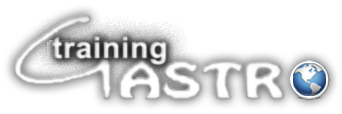Nutrition in Surgery
What is the role of preoperative preparation of elective patients using carbohydrate treatment?
Operating in a fed state 9compared with overnight fasting) has been shown to minimise insulin resistance, postoperative hyperglycaemia, loss of protein, lean body mass and muscle function, reduce anxiety and postoperative nausea and vomiting in general and orthopaedic surgery and to be cardioprotective in cardiac surgery.
The Fed state may be induced by carbohydrate load (12.5%, hypo-osmolar, 800ml the night before and 400mls 2 hrs before surgery). In the rare patients who cannot eat or are not allowed to drink for whatever reason, a glucose infusion at a rate of 5mg/kg/min will have similar effects.
When is nutritional support indicated?
Preop and postop nutrition- EN is recommended if it is anticipated that the pt will be unable to eat for more than 7 days peri-operatively. American Society for Parenteral and
Enteral Nutrition guidelines (ASPEN) recommend postoperative nutritional support for patients who cannot meet their caloric requirements within 7–10 days.
When is preoperative EN indicated?
Patients with severe nutritional risk benefit from nutritional support for 10–14 days prior to major surgery even if surgery has to be delayed.
Severe nutritional risk refers to at least one:
- Weight loss 10–15% within 6 months
- BMI less than 18.5 kg/m2
- Subjective Global Assessment Grade C
- Serum albumin 30 g/l (with no evidence of hepatic or renal dysfunction)
Is there any role of immunonutrition?
Pts undergoing major cancer surgery of the neck and abdomen as well as after severe trauma benefit from the use of ONS (3X250 ml) enriched with immune modulating substrates (arginine, omega-3 fatty acids and nucleotides). Wherever possible these should be started 5-7 days before surgery and continued postoperatively for 5–7 days after uncomplicated surgery. It reduces postoperative morbidity and length of stay. Undernourished patients, in particular, appear to benefit
What is the role of early post op (<24hrs) normal food intake or EN after GI surgery?
Early introduction of normal food intake or enteral feeding is recommended after GI surgery. When anastomosis of the proximal gastrointestinal tract has been performed, EN can be delivered via a tube whose tip is placed distal to the anastomosis.
How should patients be tube fed after surgery?
Use of naso-jejunal tube/jejunostomy is recommended for all candidates for TF undergoing major abdominal surgery. TF should be initiated within 24h after surgery.
TF should start with a low flow rate (e.g. 10—max. 20 ml/h) due to limited intestinal tolerance. It may take 5–7 days to reach the target intake and this is not considered
harmful.
What are the energy and substrate requirements for parenteral nutrition in the perioperative period?
- Energy- 25kcal/kg ideal body weight. Severe stress- 30kcal/kg IBW
- Protein-1.5g/kg IBW
- Protein: fat: CHO caloric ratio- 20:30:50%
- The optimal PN regimen for critically ill surgical pts should probably include supplemental glutamine and n-3 fatty acids.
- The standard lipid emulsion is soybean based rich in n-6 PUFA. n-6 PUFA tend to have a pro-inflammatory effect. In contrast, n-3 PUFAs have an anti-inflammatory effect and have been shown to blunt the physiological response to endotoxins. Thus increasing dose of n-3 PUFAs has been shown to reduce ICU and overall hospital stay following major abdominal surgery. Thus mixtures of LCT and MCT are used as also LCT emulsion with olive/fish oil.
- Glutamine has a major role as a substrate for the immune system and for the small bowel. Postoperative PN supplemented with glutamine dipeptide (20-40g/24h) has been shown to reduce infection rate and hospital stay. Glutamine is unstable in solution and not very soluble, so glutamine peptides have been constructed with glycine and alanine.
Is weaning from PN necessary?
No. Traditionally PN has been tapered prior to discontinuation so as to prevent hypoglycaemia. However, it has been shown recently that even after prolonged PN the beta cells remain sensitive to changes in glucose level and thus hypoglycemia is unusual
Ref






